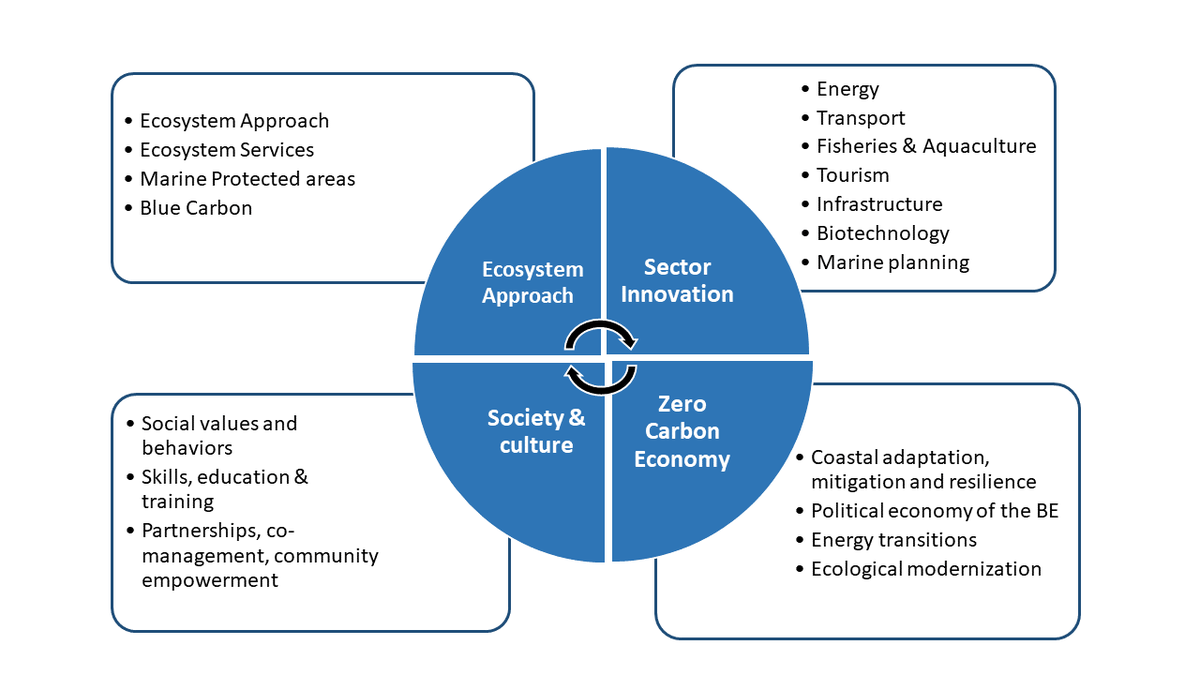Blue Economy Theme
Theme Lead: Dr Tavis Potts
We define the blue economy as a “platform for participatory coastal and ocean development and protection that integrates a low carbon economy, the ecosystem approach and human well-being through advancing regional industries, services and activities.”
This theme critically examines the emergence and consequences of recent global and national calls for a 'blue economy' across a range of spatial and temporal scales. It explores the extent and pace at which coastal regions, industries and communities are changing in response to the challenges set out by addressing climate change (addressing the UNFCCC Paris Accord and 1.5o C target); reversing global biodiversity loss (addressing the UN Convention on Biodiversity and 2020 Aichi targets) and delivery of the 2030 Sustainable Development Goals. It will examine the consequences of increasing industrialisation and economic activity on the coast in the context of coastal communities, industries and ecosystems. Coastal and marine economic activities are increasingly recognised as drivers for the new blue economy, this theme will explore the complex interplay between the Blue Economy and social, economic, cultural, and political processes.

The Blue Economy Theme explores the following topics:
- The critical examination of Blue Economy strategies and associated policy developments such as marine planning at the international, national and local scale;
- The opportunities and consequences of the integration of natural capital and ecosystem services into policy frameworks, marine sectors and conservation strategies;
- How marine sectors are developing innovative approaches to advance the low and zero carbon economy;
- Advancing partnerships and social innovation within the Blue Economy.
